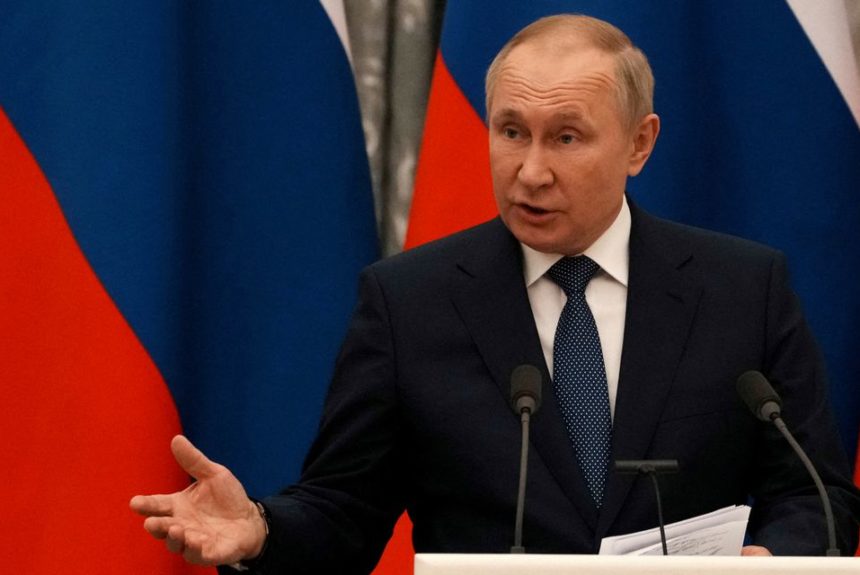U.S. officials are calling a Russian invasion of Ukraine imminent, Western countries are withdrawing ambassadors and airlines are canceling flights. Even though some security experts say it’s unlikely Russia will go through with an invasion, and that American warnings are intended to persuade Russian President Vladimir Putin to back down, at least 100,000 Russian troops on Ukraine’s border represent one of the greatest dangers to peace since the end of World War II. Finnish President Sauli Niinisto, who is viewed as a Putin whisperer, is not optimistic and fears Putin believes he has to seize “the momentum he has now.”
The world, and especially the West, must ask itself why Putin has momentum, who gave it to him and how. In the West, few factions are blameless, but few movements have done more to embolden Putin and transmit weakness than AOC-style progressive climate activists in Europe.
>>>READ:Far Left Climate Activists are Emboldening Russia
While climate change and bad climate policy are rarely the sole causes of conflict, climate related events and decisions that pre-date the Industrial Revolution have a long history of fomenting instability and conflict. Changes in rainfall may have hastened the decline of Roman civilization in the 5th century. Droughts and poor land management helped trigger the collapse of the Mayan civilization around 1,000 years ago. In the 14th and 17th centuries, climate change exacerbated conflict in Europe.
Today, climate change is often described as a “threat multiplier” that increases the odds of conflict. In 2019, the Trump Administration’s Department of Defense cited climate change as a national security threat. In its report, “Report on Effects of a Changing Climate to the Department of Defense,” the Trump DOD provided “an assessment of the significant vulnerabilities from climate-related events in order to identify high risks to mission effectiveness on installations and to operations.”
When reporters pressed DOD for context, a DOD spokesperson didn’t dilute the report’s conclusions.
“The effects of a changing climate are a national security issue with potential impacts to DOD missions, operational plans and installations,” spokesperson Heather Babb told Vox. “DOD must be able to adapt current and future operations to address the impacts of a wide variety of threats and conditions, to include those from weather, climate, and natural events.”
A clear-eyed look at Ukraine shows that climate change, and bad climate policy, isn’t a threat multiplier in the future but is a very real and dangerous factor today.
As NPR reports, European Union countries import almost 40 percent of their natural gas from Russia. For EU economic powerhouse Germany, the percentage is much higher at 65 percent. EU reliance on Russian natural gas was not inevitable. It was a choice and a policy decision designed to appease and placate AOC-style progressive climate activists in Europe.
European politicians sold their constituents a shell game, a fiction disguised as a commitment to net-zero carbon emissions goals. Instead of moving away from fossil fuels the EU simply shifted their business to Russia, which offers dirtier natural gas when compared to natural gas imported from the United States. Climate activists were happy to be lied to and didn’t hold their elected officials accountable. Climate and energy decisions that inhibited diversification such as shutting down nuclear plants and banning fracking exacerbated the problem.
In short, Russia didn’t force the EU to become dependent on its natural gas. The EU made that decision on its own. As a result, one of the most important tools in the West’s diplomatic toolbox – energy policy – is now a hammer in Putin’s hands. The progressive climate movement in Europe helped give Putin the momentum and leverage he wanted.
Instead of appeasing and enriching Putin, the West should commit itself to a peace through strength strategy that will resolve the current crisis, prevent another from developing and send a message to the genocidal polluters in Beijing that invading Taiwan won’t be worth the costs.
Authoritarian leaders only understand the language of force and resolve. The West can speak that language in four ways.
- Immediately cancel the Nord Stream 2 natural gas pipeline between Russia and Germany. If President Biden can cancel the Keystone Pipeline between Canada and the United States, he can certainly force the issue with Germany.
- Embrace energy diversification now to loosen Russia’s leverage. Europe can’t wean itself off Russian natural gas overnight but they can make this shift over the course of 2-3 years by using their own reserves, buying American natural gas and investing heavily in zero-emissions nuclear energy, including small modular reactors, as well as expanding renewable energy development.
- Arm Ukraine with lavish amounts of lethal aid. Make it very clear to Putin that invading Ukraine won’t be worth the costs.
- Help Ukraine move closer to NATO membership. The West should use its leverage with Ukraine to force democratic and rule of law reforms. Putin wants to destabilize Ukraine because he views a thriving democracy on his border as an open sore.
If war does break out soon between Russia and Ukraine climate change and bad climate policy won’t be the sole cause but they will be a major factor. The West should learn its lesson now and make policy adjustments without painful post-conflict hindsight. Sacrificing security on the altar of phony progressive climate purity is a threat to peace and the planet.
The views and opinions expressed are those of the author’s and do not necessarily reflect the official policy or position of C3.
